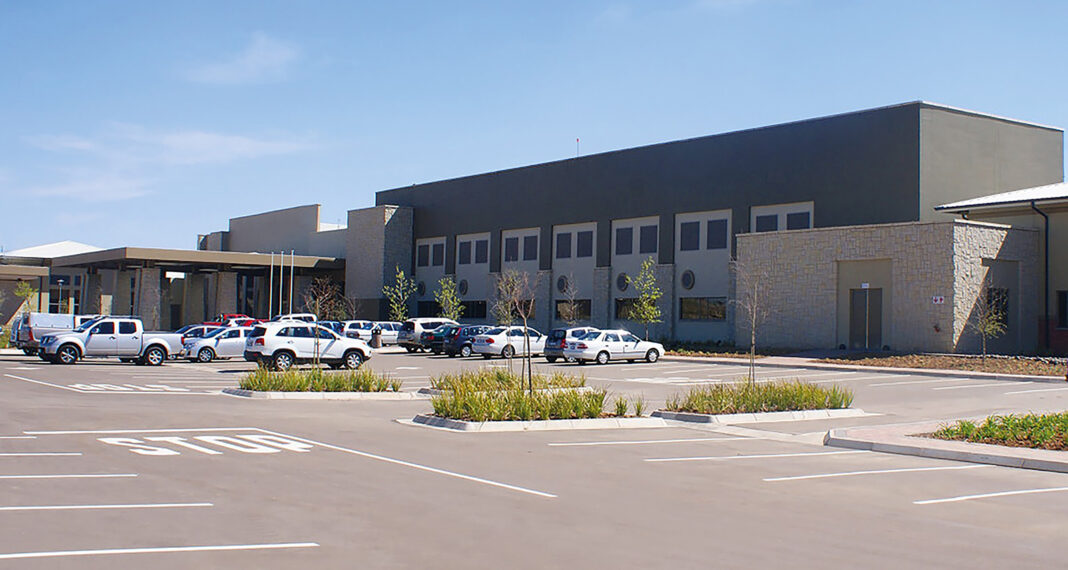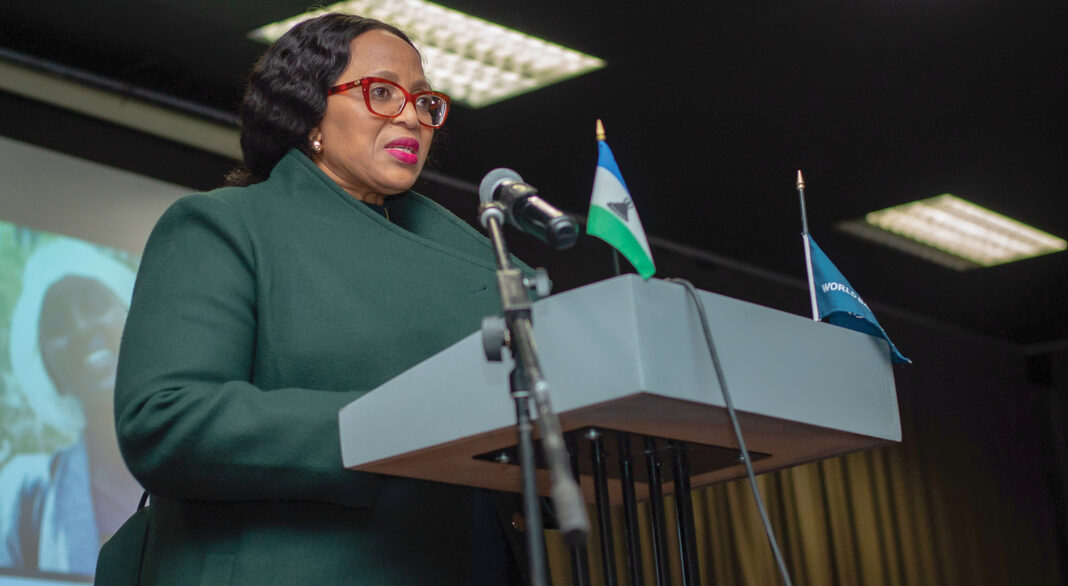By Neo Kolane
The acute shortage of paediatricians in Lesotho is putting the lives of children in jeopardy.
Paediatricians are experts in the investigation and diagnosis of children with non-specific symptoms and signs. They initiate treatment which may be delivered and continued by themselves or by another person or team according to the needs of the child.
General paediatricians manage children from birth to late adolescence with problems ranging from acute, life-threatening illnesses to chronic diseases, and focus on health promotion from new born to late adolescence.
They also collaborate with other professionals and agencies in order to deliver optimal care. They step in and oversee individual, tailored care whenever appropriate.
In a country where there are only six paeditricians to serve a population of 800,000 children, including an estimated 18,000 of these living with HIV, Kefuoe Seboka is lucky to have made it to the age of 11.
Kefuoe, of Ha Abia in the Maseru district, was diagnosed with a congenital health disease in May 2023. The condition could have been detected earlier if she had access to a paediatrician.
Congenital heart defects (CHDs) are conditions that are present at birth and can affect the structure of a baby’s heart and the way it works. They are the most common type of birth defect.
About eight in every 1, 000 children are born with some form of CHD. In some children, this is very mild and never requires treatment. However, for others, the problems can be much more serious and may require complex heart surgery. These children will need to be followed up by a heart specialist for the rest of their lives.
Causes of CHD can be some serious illnesses in the mother like diabetes, drugs taken in pregnancy, and those to control epilepsy.
Some forms of CHD are seen in children with genetic abnormalities, like Down’s Syndrome.
Its symptoms include rapid breathing and heartbeat, extreme tiredness and fatigue, cyanosis and shortness of breath during physical activity.
Kefuoe was admitted to Queen ‘Mamohato Memorial Hospital (QMMH)’s with unusual and terrifying symptoms, where a paediatrician discovered that her heart was very weak.
The paediatrician diagnosed her with congenital heart disease and immediately put Kefuoe on ‘anti-failure treatment’ because her life expectancy was completely compromised.
Kefuoe’s mother, ‘Mankeletseng Seboka, told this publication that growing up, her daughter was a sickly child with an enlarged rib cage and breathing problem.
“I took her to different clinics where they would give her a coughing syrup. I thought she had pneumonia because she had this wheezing cough and was always lethargic and sleepy.
“She was abnormally thin with a tiny frame, pale palms and yellow eyes. If she ran she would breath unusually heavily and the thud of her heart beating was audible,” Seboka recounted.
It was only in May last year that Kefuoe was transferred to QMMH after nurses decided her condition was graver than they had thought, and could not figure out what the problem was.
“It was only at QMMH where she was attended to by a general paediatrician who ran tests that lead to the discovery of the heart problem.
“It was then it dawned upon me that my baby girl was really sick,” Seboka said.
She noted that Kefuoe stayed at QMMH for four weeks before being discharged. A week later, they received a call from Universitas Hospital in Bloemfontein that they had to go there as soon as possible.
A paediatric cardiologist endorsed the original findings of a problem with the heart and diagnosed the condition as atrial septal defect. This is a birth defect of the heart in which there is a hole in the wall that divides the upper chambers of the heart.
theReporter also learnt that there are only general paediatricians in the country and no specialists.
The Lesotho Medical, Dental and Pharmacy Council’s president, Dr Kopang Mohalenyane, said there needs to be a general practitioner (GP) at every clinic. At the moment clinics are manned by nurses.
Mohalenyane said such GPs will be able to assess children depending on why they go to clinics and therefore with the knowledge they have, they will be in a position to know what to do next.
“A number of nurses stationed in clinics in this country do not have expertise to diagnose childhood diseases,” he revealed.
He urged the government to speed up plans to train its own paediatricians and retain them.
“That would be an advantage because after a baby is born, it needs to be examined, and a pediatrician is able to pick up any abnormality.
“Some clinics do not have registered nurses, but rather a nursing assistant, and this makes it hard to detect diseases such as congenital heart disease.”
Mohalenyane regretted that many children die from unknown diseases, but CHD can be detected as early as 20 weeks and it is a privilege for babies born in hospitals with general pediatricians.
He advised the government to provide clinics with resources especially human resources, adding that the doctors or nurses employed should be able to engage in conversation with patients.
“Nurses need to be groomed to understand the patient when they explain themselves; some patients are not able to express themselves properly.
“The health system of Lesotho is known to just treat complications because patients go to hospitals to prevent complications,” Mohalenyane indicated.
This sentiment was echoed by a nurse at Loretto Health Centre in Qoaling village who confirmed that indeed there are no GPs at clinics in Lesotho.
She said every even doctors are not able to detect some defects because of lack of adequate machinery.
She added that many children are born in clinics and it is not possible to detect any deformity in them.
“Our country is poor, even some hospitals do not have the necessary equipment.
“After a baby is born, we only examine the eyes, the nose, check if it has an anus, the private parts, and also if the baby is breathing properly,” the nurse explained.
The public relations manager of the ministry of health, Tumisang Mokoai, was unable to provide this publication with information saying he was busy.
The 2023-2024 budget indicated that government was continuing its mission to provide efficient health care systems by improving access to basic primary healthcare services.
It added that due to the COVID-19 pandemic, communicable and non-communicable diseases had been neglected and that government would therefore take corrective measures to fight and treat these diseases.
The sector was allocated M3.2 billion for financing health sector programmes, to allow deployment of the health work force in critical areas, procurement of critical equipment in hospitals, and implementation of disease prevention programmes.
The 2024-2025 budget does not mention any progress made in this regard, but the sector was allocated M3.4 billion to prioritise community engagement in primary healthcare initiatives that presents an opportunity for cost-saving measures.
Emphasis will be more on preventative healthcare measures to alleviate the burden on the country’s healthcare system.
In pursuit of sustainable access to medicines and medical devices, government will implement a comprehensive electronic Logistics Management Information System (e-LMIS) to enhance distribution systems to include CHAL facilities.
“The Maseru District hospital is expected to be completed in March 2024. The hospital represents a monumental milestone in our healthcare infrastructure development. It is poised to serve approximately 450,000 people,” the minister of finance and development planning, Retṧelisitsoe Matlanyane, said last week in her 2024-25 budget speech.








